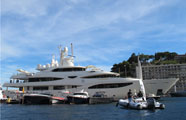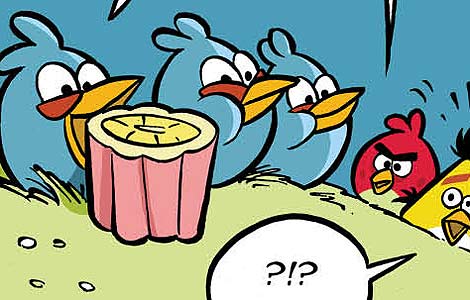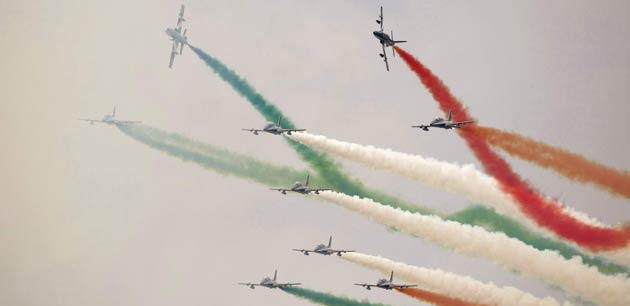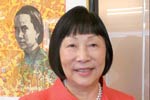What are the ingredients for bravery?
Updated: 2011-09-02 09:03
By Huang Weijia (黄伟嘉), Revised by Huang Dekuan (黄德宽) (China Daily)
|
|||||||||
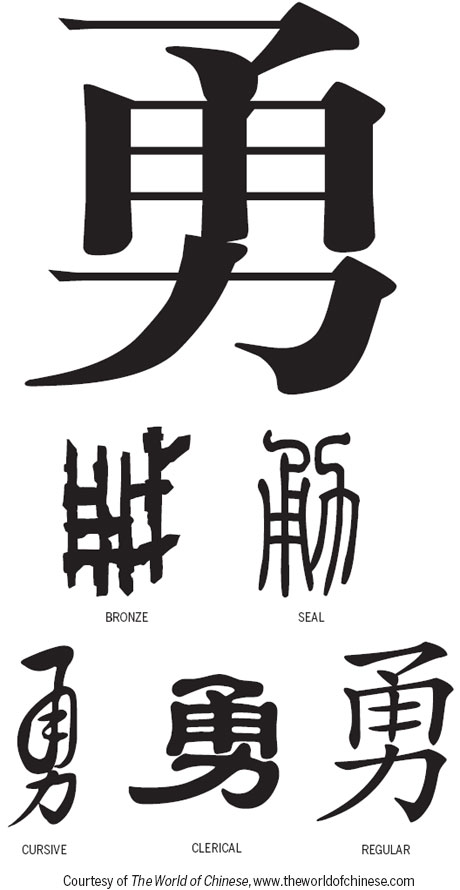
What are the ingredients for bravery? "勇"字的家庭成员都有谁?
Guts. Warriors have them. Cowards don't. In the eyes of the ancient Chinese, if you could gallantly wield a weapon, then you were blessed with 勇 (yǒng) - courage. What is the source of this 勇, you ask? Consult with your classical Chinese dictionary and you’ll see that bravery is either the result of your heart's resolve or of your brute physical strength.
The person you summon to kill a spider, capture a mouse or perhaps unclog a toilet is the person who dons 勇 like a protective helmet. As the ancient Chinese saying goes, "知死不辟,勇也" (Zhī sǐ bú pì, yǒng yě) - someone with a stock of 勇 can look death straight in the eye and forge on in the throes of danger. In fact, even an ambush of ten thousand rivals would pale against a man with steel nerves to spare (万夫不当之勇 Wàn fū bù dāng zhī yǒng). The ever wise Confucius once said, "仁者不忧,智者不惑,勇者不惧" (Rén zhě bù yōu, zhì zhě bú huò, yǒng zhě bú jù) - the charitable are not plagued with worries, the wise cannot be duped and the courageous are immune to fear.
Courage comes in a variety of armors - and words. Some individuals wear the 勇敢 (yǒnggǎn) suit to become fearless against danger. Others might go for the more aggressive 勇猛 (yǒngměng) design, which fuses bravery with a ferocious energy. There's also the combo 智勇双全 (zhì yǒng shuāng quān) or the 有勇有谋 (yǒu yǒng yǒu móu) breast plate for both bravery and resourcefulness. Each armor requires supplements of 勇气 (yǒngqì, nerves) to guarantee the 勇士 (yǒngshì, brave man) an ample reserve of courage.
勇 is also free to take a number of avenues. Brawn is great unless you lack the brains to channel the strength wisely, thus leading your 勇 down the foolhardy lane (有勇无谋 yǒu yǒng wú móu).
It’s best for your 勇 to head in an honorable direction. For example, you should take to action when the goal is to attain a just result (见义勇为 jiàn yì yǒng wéi). Without honorable intent, a person’s gutsy fervor can easily go awry.
An early Confucius quotation reflects, "君子有勇而无义为乱, 小人有勇而无义为盗" (Jūnzi yǒu yǒng ér wú yì wéi luàn, xiǎorén yǒu yǒng ér wú yì wéi dào). In other words, a ruler who is valorous but not moral creates chaos; a commoner with courage but without a conscience commits banditry. Throughout history, in all parts of the world, someone who flaunts courage but disregards justice is bound to do wrong; someone who possesses both courage and morality, however, is destined to become a hero.
Normally, expressions that contain the character "勇" denote active progress and fierce forward momentum. But, "急流勇退" (jí liú yǒng tuì) depicts a decisive retreat before a crisis. This metaphor was originally applied to officials who withdrew from their posts at the height of their careers. Today, the idiom is also used on people who shy away from strife.
The character "勇" also refers to a rank-and-file soldier. During the Qing Dynasty (1644-1911), enlisted soldiers were dubbed "勇". This usage persists today with expressions like, "乡勇" and "散兵游勇". "乡勇" (xiāngyǒng) designates a group of soldiers organized at the village level. "散兵游勇" (sǎn bīng yǒu yǒng), once describing soldiers who had lost their commander, is now an euphemism for loners. As you can see, 勇 is not a one trick pony. For best results, keep your wits about you, carry a heart of gold and your 勇 will take you far.
-Translated by Caroline Berg (碧琪莲)

Courtesy of www.theworldofchinese.com


